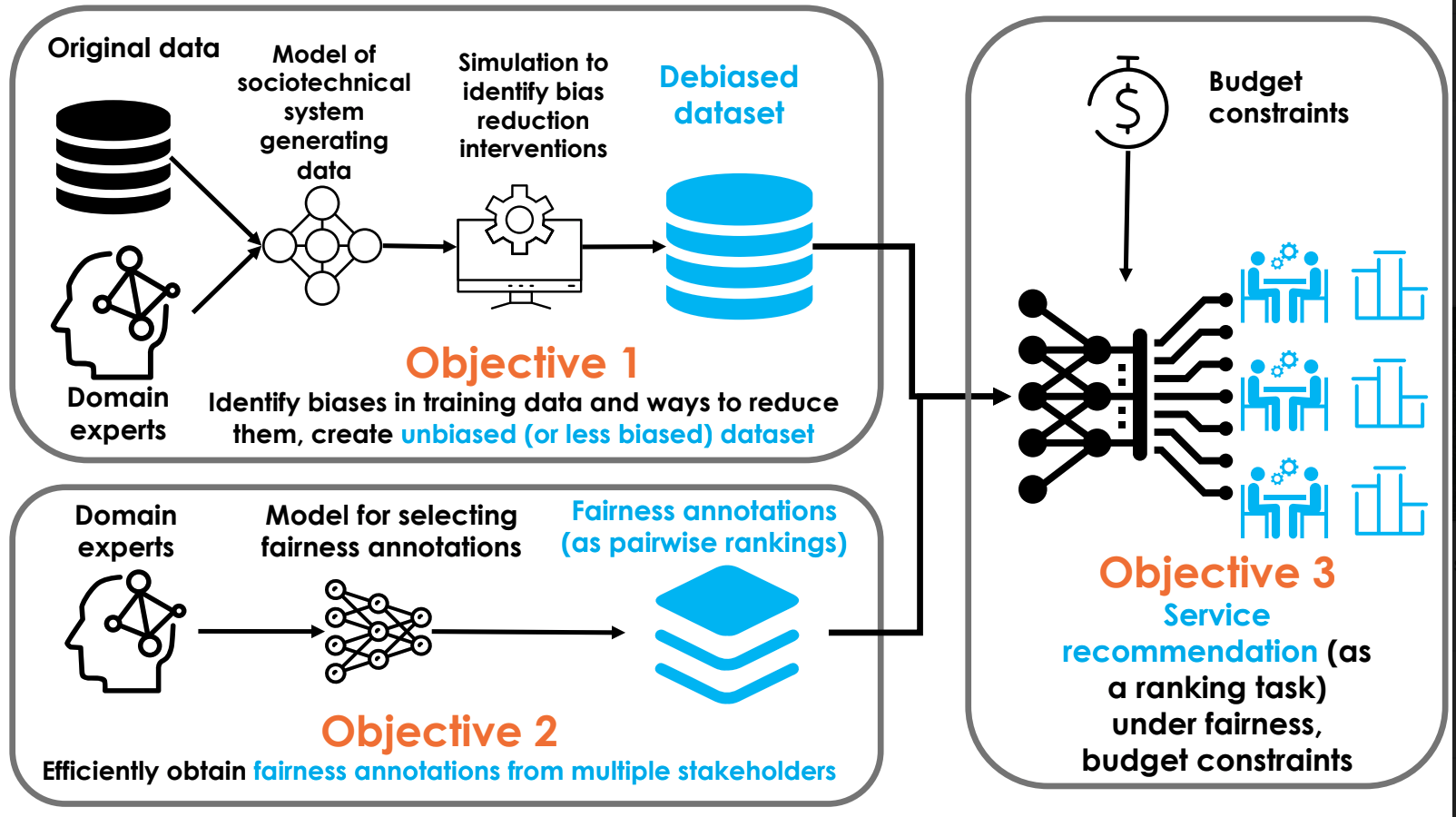
Building a Fair Recommender System for Foster Care Services within the Constraints of a Sociotechnical System
Project website
Project Description
20,000 age out of foster care without reunifying with their families. The outcomes for these youth are poor. By age 19, only 59% finish high school, 20% have been homeless, and 27% of males have been incarcerated. These outcomes have significant and costly impacts for the youth and for society. Fortunately, youth in foster care are potentially eligible to receive services, such as vocational training, that may improve their chances at positive life outcomes. However, caseworkers are typically only able to identify youth for these services after the youth experiences a relevant need or crisis. To address this problem, this project will develop an algorithm to assist caseworkers in identifying youth in need of services before crises occur, and to allocate those services in a fair and just way. Critically, the algorithm will be informed at every step by inputs from foster youth and caseworkers. The methods developed will free resources for foster care agencies that are chronically underfunded and understaffed, increase procedural transparency and accountability in decision-making, and provide a critical tool to identify youth who need services before crises occur.
In developing the service recommendation algorithm, three fundamental research objectives will be addressed. First, methods will be developed to help domain experts identify and mitigate hard-to-find social biases in training data. Second, methods will be developed to identify multiple perspectives of fairness (e.g. from foster youth and case workers) with respect to service allocation decisions. Finally, a method will be developed to recommend service allocation strategies for foster youth in ways that balance the goal of ensuring fair distribution, according to multiple perspectives on fairness, and the goal of increasing the odds of positive life outcomes of all youth. All approaches will be evaluated extensively, with tight integration with multiple stakeholders in foster care. We will also provide evidence of the generality of our methods to other domains and provable bounds on their efficiency and accuracy. Stakeholder integration includes a partnership with a local foster care agency servicing over 10,000 youth per year, and a Youth Advisory Council of youth with experience in foster care who will play an important role in model development.
UBDS Contributors
Pranav Sankhe (RA), Varun Chandola (co-PI)
Other Contributors
Prof. Kenny Joseph (PI), Prof. Atri Rudra (co-PI), Prof. Winnie Chen (co-PI), Prof. Melanie Sage (co-PI)
Funding
National Science Foundation
, Amazon
Project Duration
01/2020 - 12/2022